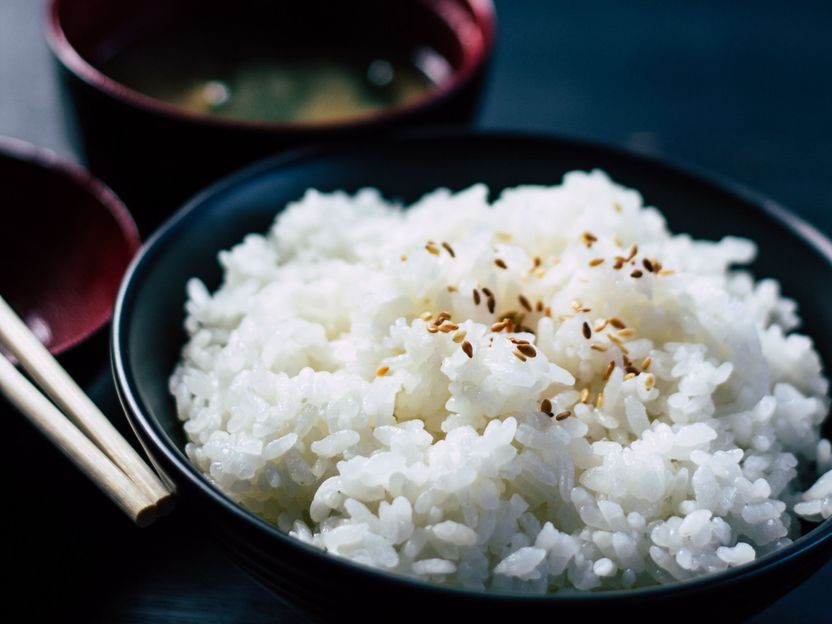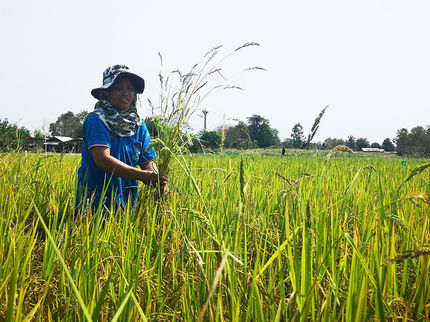Falling yields and rising arsenic levels jeopardise rice supply
Advertisement
As a result of global warming, the global rice harvest could be much smaller than previously assumed. In addition, the rice could be contaminated with the toxic metalloid arsenic well beyond today's EU limits. This is the conclusion reached by an international research team at the Universities of Stanford, Tübingen and Bayreuth led by Dr. Eva Marie Muehe, researcher at the Universities of Stanford and Tübingen. According to the scenarios of the research team, rice production could fall by up to 40 percent by the end of this century. The study was published in the journal Nature Communications.

Photo by Mgg Vitchakorn on Unsplash
Rice is the most important staple food for more than half of the world's population. Globally, it provides the most calories per capita and day. It has long been feared that climate change could reduce crop yields by up to 15 percent with rising temperatures and increased carbon dioxide levels in the air, as well as water shortages. In the new study, the researchers took into account not only the climate data but also the increasing pollution of the soil and calculated far more dramatic harvest losses - and this for a rapidly growing world population whose food needs to be guaranteed.
Interactions intensify the problems
In Asia, where 97 percent of the world's rice harvest is produced, the toxic metalloid arsenic often occurs naturally in groundwater. Arsenic accumulates more and more in the soil due to the irrigation of the rice fields. "We have noticed that arsenic from the soil is increasingly absorbed by rice plants at higher temperatures and with a higher carbon dioxide content in the air," says Eva Marie Muehe. Arsenic damages the formation of rice grains and thus further reduces the yield already reduced by global warming conditions.
With the help of greenhouse studies, the scientists were able to show, based on simulation models to date, that global warming alone causes a yield loss of 16 percent for the Californian rice variant M206. "If we take into account the increased availability of arsenic in the soil, we will have a total yield loss of 42 percent," says Muehe. This means that forecasts of future rice yields are clearly too high. The rice produced in the future will also contain more of the arsenic toxic to humans. The constant intake of large amounts of arsenic can lead to skin injury, cancer, aggravation of lung disease and even death.
In cooperation with other research teams, the scientist wants to further improve the models for future rice production, taking into account the effects of pollutants such as arsenic. "The new study results are of immense importance for assessing the food security of large parts of the world's population," says Eva Marie Muehe.
Note: This article has been translated using a computer system without human intervention. LUMITOS offers these automatic translations to present a wider range of current news. Since this article has been translated with automatic translation, it is possible that it contains errors in vocabulary, syntax or grammar. The original article in German can be found here.
Original publication
E. M. Muehe, T. Wang, C. F. Kerl, B. Planer-Friedrich, S. Fendorf: Rice production threatened by coupled stresses of climate and soil arsenic. Nature Communications































































